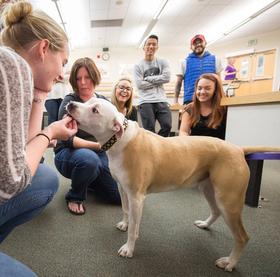Religion is a cornerstone in nearly every community, and as communities are expanding, individuals are being exposed to greater opportunities within the services of a church or spiritual organization. Today, many students attendcommunity college, studying in theological/religious programs to learn more about the history, traditions, beliefs, and careers in a particular religious realm.
Religion and Careers
The Expanding Opportunities
While many believe that religious careers are limited to taking on the large role of a pastor, preacher, or religious leader, the careers in religious service are becoming incredibly more vast and diverse. In fact, while religious studies are offered at both community college and university institutions, Rutgers University specifically supports, “Religion graduates pursue careers in business, education, health professions, government, and the non-profit sector […] Future career options may be determined not so much by the choice of the religion major, but by interests, skills, values, and types of work experiences acquired during college.”
Essentially, regardless of the intended career pathway, a student can gain much experience, insight, skills, and support through studying religion in community college.
Specific Career Pathways
While a degree in religious studies/theology from a community college can certainly open doors to various career options, many students seek to study religion to find a career within a specific non-secular church or institution. If interested in this pathway, students can engage in community college theology courses to pursue a career as a teacher in a religious school and/or Sunday school teacher, a Young Life leader, a director of religious education at an organization, or can even engage in work as a counselor/mentor with a religious focus. Adding to these career options, community college religious courses can also guide students towards careers in service as a deacon, preacher, pastor, or other formal religious leader.
Religion, Theology, and Community College Programs
While religious and non-religious career options exist, students can utilize various theological studies at community colleges. Although theological and religious studies range from various focuses and beliefs, many students report that community colleges' most commonly found religious programs tend to be Christian-based. No community college intends to limit its religious programs, but Christian-based organizations usually contain more student participants than other religious affiliations.
Specifically, Austin Community College and Christian Community College are just two of the many community colleges nationwide earning recognition for their specific religious programs.
As Austin Community College (ACC) reveals, “Austin College is deeply sensitive to, and respectful of, the many spiritual traditions represented among its students. Proud of its affiliation with the Presbyterian Church (USA), the College cultivates a vital religious life for Austin College students, faculty, and staff through a wide variety of programs and activities.”
For example, although the college is specifically associated with the Presbyterian Church, ACC offers a variety of theological programs to support students in pursuing various religious careers. As evident in their “Religious Life Programs,” students can learn about organizations such as Young Life or take advantage of ACC’s vocational program offerings, while also engaging in community service activities.
Among the many opportunities, students can engage and network in affiliations associated with their community college to branch out and expand their career opportunities after graduation. As ACC supports, “Austin College provides various religious life programs that encourage spiritual growth and seek to meet the spiritual needs of the entire community. The religious life program seeks to support and take seriously all students' spiritual lives and growth through weekly worship services, Bible studies, discussion groups, lecture series, and other activities involving Christian and non-Christian students.” Adding to this, “The religious life program also includes the Service Station, a student-led program coordinating Austin College students, faculty, and staff participation in community service projects.
Christian Community College (CCC)
For students who are not necessarily seeking a religious / theology degree but desire to learn amidst a religious atmosphere with a specific religious focus, Christian Community College is an award-winning institution that provides students with both religious and non-religious career and study pathways. As CCC explains, “Community Christian College is an independent Christian, co-educational two-year college, devoted to the liberal arts, and granting an Associate of Arts degree in the Liberal Arts.”
As the college was founded in the early 1990s, the creators of CCC started, “Thinking, praying, and planning began among a group of educationally and spiritually adventuresome people in Redlands, California. The early planners agreed that there was a place for a new institution of higher education in Southern California, one which would be Distinctively Christian, joyfully celebrating faith in Jesus Christ, and honoring Christian values in both thought and practice.” With highly qualified instructors and an intense focus on intellectual pursuits and studies, CCC aims to give every student one-on-one attention amidst their religious focus and direction. CCC further reveals that they strive to be “Nurturing and supportive, where small classes and personal attention foster a close-knit community of genuine friendship and camaraderie.”
Regardless if you want to pursue a career in religion, studying theology at your community college can open many professional and spiritual pathways.
Questions? Contact us on Facebook @communitycollegereview.












